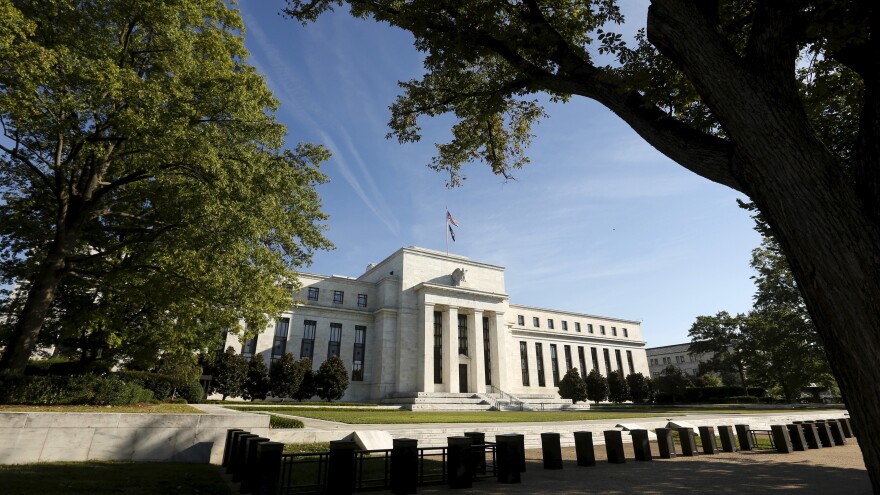On Wednesday, the U.S. Federal Reserve again decided not to raise interest rates.
While Chair Janet Yellen has suggested she'd like to raise rates this year, policymakers decided now is not the time, NPR's John Ydstie reports:
"Their statement shows that their concern about the job market has risen following two disappointing employment reports in a row. The statement also repeats the Fed's concern that inflation is running below the 2 percent level it feels is best for the economy. On the positive side, Fed officials moderated their concern about the global economy and pointed to solid growth in consumer spending and business investment. They also made a pointed reference to the possibility of raising rates at their next meeting, in December."
As the Two-Way reported Tuesday, the decision to keep rates near zero was not unexpected:
"Interest rates haven't been raised in nine years and remain at historically low levels. With the U.S. economy's long expansion, the case for a rate increase seemed, until recently, pretty strong.
"But the downturn in parts of Asia, Latin America and Europe is bad news for U.S. exporters, and the U.S. job market is suddenly underperforming, at least compared with earlier this year."
When the Fed left interest rates unchanged in September, it justified keeping rates low because of concerns about the global economy. The Two-Way reported at the time that:
"The Fed has not increased rates since June 2006. In fact, when the Great Recession took hold in 2007, the Fed began slashing rates to stimulate business and consumer borrowing. The key federal funds rate has been near zero since late 2008.
"Fed Chair Janet Yellen explained the central bank's decision in a news conference after the meeting. 'The economy has been performing well and we expect it to continue to do so,' she said. But Yellen cited 'heightened uncertainties abroad,' including the slowdown in China, as a key factor keeping the Fed from raising rates now."
Reuters reports that the central bank said it is "still monitoring economic and financial developments abroad, but did not repeat that global risks would have a likely impact on the U.S. economy," which "marked a softening in tone compared to the Fed's statement last month."
Copyright 2021 NPR. To see more, visit https://www.npr.org. 9(MDEwMTk5OTQ0MDEzNDkxMDYyMDQ2MjdiMw004))



